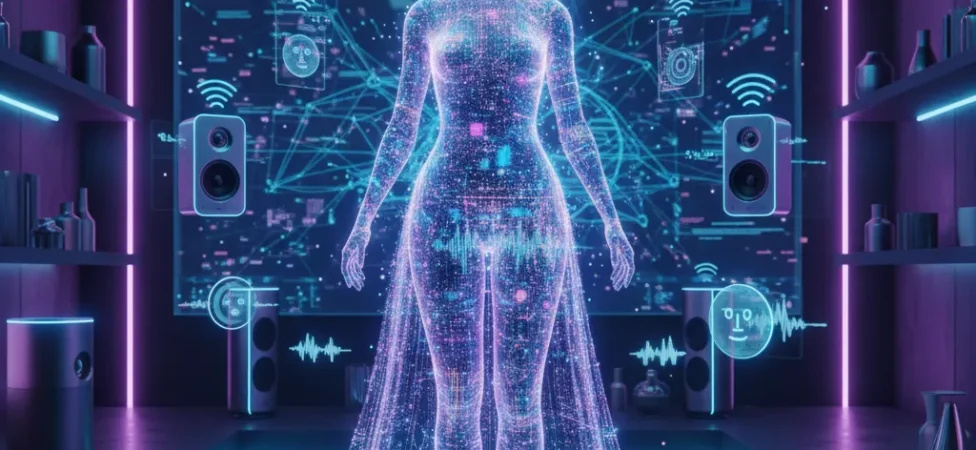Artificial intelligence is often presented with a female identity—whether through voice assistants like Siri and Alexa, or digital companions. This happens for a mix of cultural, psychological, and marketing reasons. Many people find female voices more soothing, trustworthy, and approachable. Platforms such as AIGirlfriends.ai also lean into this preference, offering users a chance to experience companionship with AI girlfriends in a natural, engaging way.
The History of Female AI Representation
The roots of AI being mostly female go back decades. When early speech synthesis technology was introduced, researchers found that listeners overwhelmingly preferred female voices. This preference influenced how AI assistants and digital companions were designed. By the time consumer-facing AI products emerged, female personas were the norm.
From classic science fiction films that depicted robots as nurturing or supportive women, to modern apps that replicate companionship, the female presentation of AI has become ingrained in popular culture.
Psychological Factors Behind Female AI Preference
Trust and Comfort
Studies show that people often perceive female voices as more trustworthy and less threatening than male voices. In a world where AI was once unfamiliar and intimidating, using a female voice helped ease people into interacting with machines.
Soothing and Nurturing Associations
Culturally, femininity is linked with nurturing qualities—care, empathy, and attentiveness. These traits are highly desirable in virtual assistants and companions. This explains why many companies program their AI to embody these characteristics.
Familiarity Effect
From GPS systems to customer service bots, female voices have been the most common form of AI interaction for years. This created a cycle of familiarity: users expect AI to sound female, so companies continue to design them that way.
Marketing and Commercial Strategy
Gendered Branding
Companies are deeply aware of consumer psychology. Female-branded AI products often perform better in the market because they feel more approachable and helpful. Male-branded AI is typically reserved for authority-based contexts, such as military applications or business analytics.
The Rise of AI Companionship
With the growth of digital companionship platforms, female personas dominate because they align with consumer demand. Services like AIGirlfriends.ai cater to this exact market, allowing people to explore emotional and conversational connections with AI girlfriends in a supportive way.
Cultural Influences
Media and Science Fiction
Movies and literature frequently depict AI as female. From “Her” to “Ex Machina,” these portrayals have shaped public expectations. The narrative of AI as a female entity has become almost archetypal, reinforcing consumer acceptance.
Gender Norms and Roles
Social conditioning plays a role too. Historically, service roles have been feminized—nurses, secretaries, receptionists. When AI took on the role of an assistant, it followed this cultural script, adopting a female identity.
The Benefits of Female AI
- Ease of adoption: Female AI is less intimidating, encouraging more people to interact with it.
- Emotional connection: People often form stronger bonds with female-voiced AI companions.
- Market success: Products marketed with female AI personas tend to sell better.
This is especially true in the growing field of virtual partners and AI companionship, where the demand for female-presenting AI far outweighs male alternatives.
Criticisms and Risks
Gender Stereotyping
One major criticism is that assigning female personas to AI reinforces outdated stereotypes—particularly the idea that women exist to serve or provide emotional labor. Some argue this could perpetuate harmful societal norms.
Lack of Diversity
Focusing heavily on female AI may limit innovation. More balanced representation—including male, non-binary, and customizable AI personas—could offer broader inclusivity.
Over-Reliance on Familiarity
If companies rely only on female AI because it is “safe,” they risk stagnating the industry instead of challenging users to accept new, diverse AI identities.
The Future of AI Gender
As AI evolves, so too does the conversation around gender in digital companions. Some platforms are already offering customization—allowing users to choose not only the gender but also the personality, voice, and traits of their AI partners. This shift represents a step toward inclusivity and user empowerment.
Services like AIGirlfriends.ai showcase how AI companionship can be both personal and adaptable. By letting users interact with female-presenting AI companions while also exploring unique personalities, these platforms highlight where the future of digital companionship is headed.
Conclusion
AI is mostly female because of cultural, psychological, and market-driven factors. People find female AI more comforting, trustworthy, and engaging, which is why companies continue to design them this way. While this raises valid questions about gender representation and stereotypes, it also underscores the deep connection humans feel with female-presenting AI.
As the industry grows, more customizable options are likely to appear. But for now, female AI remains the dominant choice—especially in companionship platforms like AIGirlfriends.ai, where users can experience engaging, supportive, and personalized relationships with AI girlfriends.
Frequently Asked Questions
Why do most AI assistants have female voices?
Because research shows that users find female voices more soothing, trustworthy, and approachable, making adoption easier.
Is female AI more popular than male AI?
Yes, especially in companionship and service-oriented roles. Male AI is usually reserved for authority-driven applications.
Does female AI reinforce stereotypes?
It can, since it associates women with servitude or emotional labor. That’s why diversity and customization are increasingly important.
Can I choose a male or non-binary AI companion?
Some platforms now allow customization, but female AI remains the most popular choice due to consumer demand.
Where can I try an AI girlfriend?
You can explore AI companionship on AIGirlfriends.ai, a platform designed for creating meaningful digital relationships.
